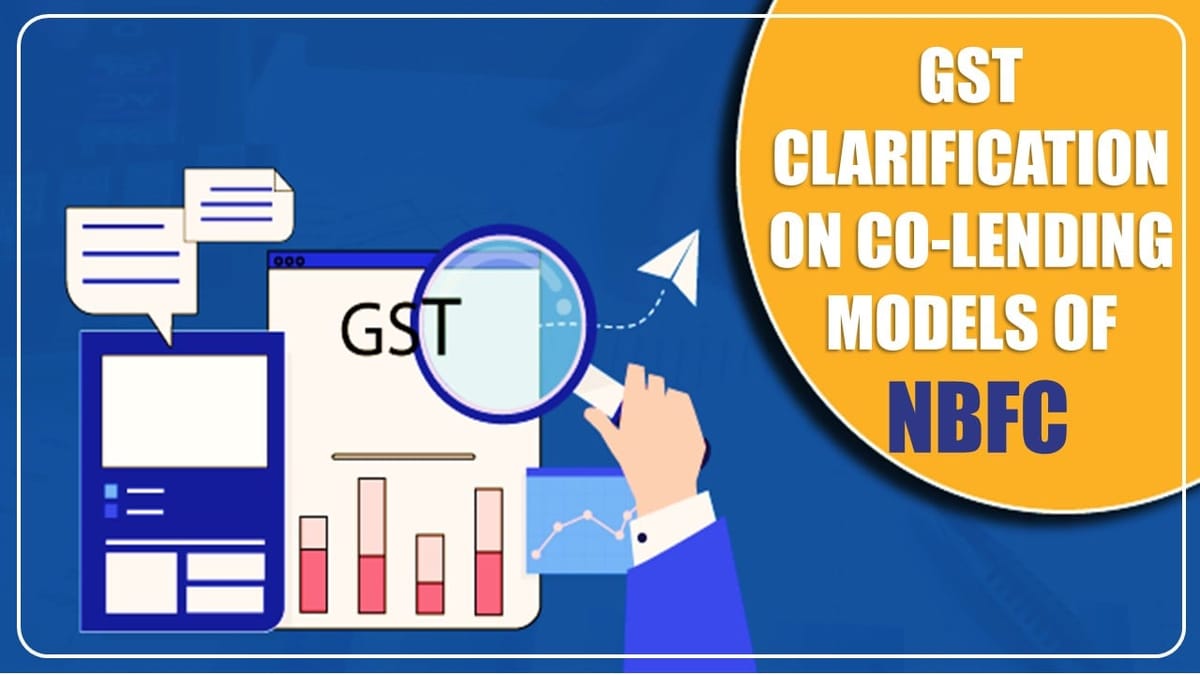Priyanka Kumari | Dec 4, 2023 |

CBIC: Clarify GST on Co-lending Models of NBFC
The Finance Industry Development Council (FIDC), which represents non-bank lenders, has officially requested that the Central Board of Indirect Taxes and Customs (CBIC) provide explicit clarification regarding the Goods and Services Tax (GST) treatment of excess interest retained by Non-Banking Financial Companies (NBFCs) in co-lending models with banks.
This request is in response to the Directorate General of GST Intelligence‘s ongoing inquiry into the co-lending business model implemented by NBFCs and banks. In a letter to CBIC chairman Sanjay Kumar Agarwal, FIDC highlighted the need for full disclosure to eliminate uncertainties about potential GST evasion claims.
Credit is often contributed in an 80:20 ratio in co-originating models involving banks and NBFCs. According to FIDC, the higher interest rates imposed by NBFCs under such models reflect their higher borrowing costs when compared to banks. The letter emphasized that because the excess interest kept by NBFCs does not serve as consideration for any specific activity, it should be excluded from GST.
FIDC drew attention to arrangements in which banks structure co-lending as a post-disbursal takeover of their portion of the loan, similar to the direct assignment approach. In this arrangement, an NBFC seeks borrowers based on predetermined credit parameters, while the bank serves as the acquiring co-lender.
Following disbursement, the bank assumes control of 80% of the loan, while the NBFC retains 20%. An escrow mechanism is formed to collect borrowers’ repayments, which are subsequently distributed among co-lenders according to a pre-determined ratio. The FIDC claimed that the “excess interest spread,” or the difference between the blended interest rate offered to the borrower and the interest paid to banks on co-lent loans, is simply interest income and should not be subject to GST.
FIDC highlighted that while this excess interest spread is like interest income, it is taxable, but it is not a fee or charge subject to GST. The letter stated that there is no usual supply of services from one party to another in co-lending agreements, where both businesses work as co-lenders to offer credit, which further strengthened the case for GST exemption.
This action by FIDC aims to provide much-needed clarification in the regulatory landscape, ensure fair and transparent treatment of financial transactions under co-lending models, and ultimately benefit the financial industry as a whole.
In case of any Doubt regarding Membership you can mail us at contact@studycafe.in
Join Studycafe's WhatsApp Group or Telegram Channel for Latest Updates on Government Job, Sarkari Naukri, Private Jobs, Income Tax, GST, Companies Act, Judgements and CA, CS, ICWA, and MUCH MORE!"